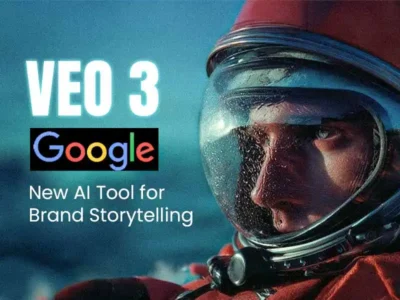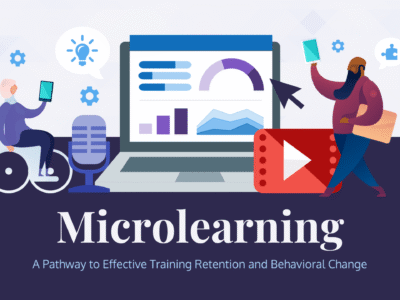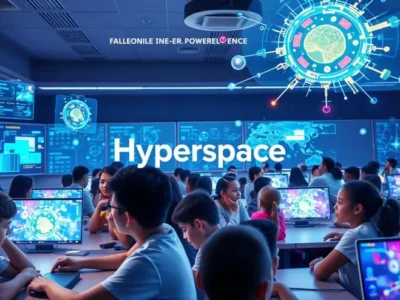Cloud Architect & DevOps Engineer: Mastering Modern IT Infrastructure
Duration: 10 Weeks (or Self-Paced)Level: Beginner to IntermediateFormat: Video Lessons, PDFs, Demos, Hands-On Labs, Quizzes, and Final ProjectTools Used: AWS, Azure, GCP, Docker, Kubernetes, Git, Jenkins, Terraform, GitHub Actions, Ansible, CI/CD Pipelines Course Objective Equip learners with in-demand skills in …
Overview
Duration: 10 Weeks (or Self-Paced)
Level: Beginner to Intermediate
Format: Video Lessons, PDFs, Demos, Hands-On Labs, Quizzes, and Final Project
Tools Used: AWS, Azure, GCP, Docker, Kubernetes, Git, Jenkins, Terraform, GitHub Actions, Ansible, CI/CD Pipelines
Course Objective
Equip learners with in-demand skills in cloud infrastructure, deployment automation, DevOps lifecycle management, and infrastructure as code (IaC), enabling them to build, deploy, and manage scalable and reliable systems across cloud environments.
Module 1: Introduction to Cloud Computing & DevOps
Topics Covered:
-
What is Cloud Computing?
-
Service Models: IaaS, PaaS, SaaS
-
Deployment Models: Public, Private, Hybrid, Multi-Cloud
-
What is DevOps?
-
The DevOps Lifecycle: Plan → Develop → Build → Test → Release → Deploy → Operate → Monitor
-
Cloud vs Traditional Infrastructure
Learning Outcome:
Gain a clear understanding of how cloud and DevOps reshape IT and software delivery.
Activities:
-
Compare cloud vs on-premise infrastructure
-
Identify 3 real-world companies using DevOps and cloud platforms
Module 2: Cloud Platforms Overview (AWS, Azure, GCP)
Topics Covered:
-
AWS Services Overview: EC2, S3, RDS, Lambda, VPC
-
Azure Services Overview: Virtual Machines, Blob Storage, App Services, Functions
-
GCP Services Overview: Compute Engine, Cloud Storage, Firebase, BigQuery
-
Cloud Console Walkthrough
-
Setting Up Free Tiers
Learning Outcome:
Become familiar with the three major cloud providers and their most commonly used services.
Activities:
-
Create a free-tier AWS/Azure/GCP account
-
Launch your first virtual machine on one platform
Module 3: Virtualization, Containers & Microservices
Topics Covered:
-
Virtual Machines vs Containers
-
Introduction to Docker and Containerization
-
Building, Tagging, and Running Docker Images
-
Introduction to Microservices Architecture
-
Containers vs Monoliths
Learning Outcome:
Understand how containerization transforms development and deployment workflows.
Activities:
-
Install Docker and run a sample web app
-
Break a monolithic app into small microservices (conceptual exercise)
Module 4: Version Control and GitOps
Topics Covered:
-
Introduction to Git and GitHub
-
Repositories, Commits, Branches, Merges, Pull Requests
-
Git Workflows (Gitflow, Feature Branching)
-
GitOps Overview: Infrastructure through Code
-
Introduction to GitHub Actions for automation
Learning Outcome:
Use version control to manage code and infrastructure changes securely and collaboratively.
Activities:
-
Push code to GitHub and create a pull request
-
Write a basic GitHub Actions workflow to run tests
Module 5: CI/CD (Continuous Integration & Continuous Delivery)
Topics Covered:
-
CI/CD Concepts and Benefits
-
CI/CD Pipeline Stages
-
Jenkins: Setup, Jobs, Pipelines
-
GitHub Actions for CI/CD
-
Deployment Strategies: Blue/Green, Canary, Rolling Updates
Learning Outcome:
Build, test, and deploy code automatically using industry-standard CI/CD tools.
Activities:
-
Create a CI/CD pipeline using Jenkins or GitHub Actions
-
Deploy a test app to a cloud server automatically after each push
Module 6: Infrastructure as Code (IaC) with Terraform
Topics Covered:
-
What is IaC and Why It Matters
-
Introduction to Terraform
-
Providers, Resources, Variables, and Outputs
-
Provisioning AWS Resources with Terraform
-
State Management and Remote Backends
Learning Outcome:
Use code to provision and manage cloud resources reproducibly.
Activities:
-
Write a Terraform script to launch an EC2 instance
-
Deploy a multi-tier web app infrastructure using Terraform
Module 7: Configuration Management with Ansible
Topics Covered:
-
Introduction to Configuration Management
-
What is Ansible and How It Works
-
YAML and Playbooks
-
Installing Software and Managing Users via Playbooks
-
Ansible Inventory and Roles
Learning Outcome:
Automate server configuration and app deployments with Ansible.
Activities:
-
Write an Ansible playbook to install NGINX on a cloud server
-
Create a role-based playbook for a full stack deployment
Module 8: Container Orchestration with Kubernetes
Topics Covered:
-
Why Kubernetes? Basics and Use Cases
-
Pods, Services, Deployments, ReplicaSets
-
Kubernetes Architecture and Components
-
Minikube and kubectl Basics
-
Helm Charts Overview
Learning Outcome:
Orchestrate and manage containerized applications at scale.
Activities:
-
Deploy a Docker container to a Kubernetes cluster using Minikube
-
Scale a deployment and expose it using a service
Module 9: Monitoring, Logging & Cloud Security
Topics Covered:
-
Importance of Observability in DevOps
-
Monitoring Tools: Prometheus, Grafana
-
Centralized Logging: ELK Stack, CloudWatch, Azure Monitor
-
Cloud Security Basics: IAM, Encryption, Firewalls
-
Compliance & Governance in the Cloud
Learning Outcome:
Monitor, troubleshoot, and secure your cloud-based environments.
Activities:
-
Set up monitoring for a deployed application
-
Analyze access logs and identify suspicious activity
Module 10: Capstone Project & Career Guidance
Capstone Project Options:
-
Deploy a full-stack web application with Docker and Kubernetes
-
Create a CI/CD pipeline with Terraform and GitHub Actions
-
Build and monitor a microservices-based app on AWS or Azure
-
Automate infrastructure and deployment with Ansible
Final Assessment:
-
Quiz covering all modules
-
Capstone project submission and review
Career Preparation:
-
Cloud & DevOps Resume and LinkedIn Tips
-
Certification Paths:
-
AWS Certified Solutions Architect
-
Azure Fundamentals / DevOps Engineer
-
Docker Certified Associate
-
Certified Kubernetes Administrator (CKA)
-
-
Portfolio and GitHub Readiness Checklist
Certificate of Completion:
Issued to learners who pass all modules and submit the capstone project.
Bonus Resources:
-
Cheatsheets: Docker, Kubernetes, Terraform, Git, YAML
-
Free Cloud Tools Directory
-
Sample Interview Questions & Solutions
-
Weekly Cloud & DevOps Challenge Tasks
-
Invite to Community Forum or Slack Group
Teaching Methodology:
-
Video Lectures (10–20 mins each)
-
Visual Diagrams and Whiteboard Explanations
-
Downloadable Notes and Templates
-
Hands-On Labs via Virtual Machines or Cloud Accounts
-
Weekly Checkpoints and Quizzes
-
Group Discussions and Peer Review (if instructor-led)
Target Audience:
-
Students and IT enthusiasts interested in cloud and DevOps
-
System administrators transitioning to DevOps roles
-
Software developers aiming to automate and scale deployments
-
Professionals preparing for cloud certifications or DevOps careers







